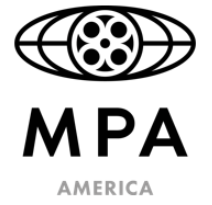Dutch ISP Does Not Have to Identify Alleged Pirates, Appeals Court Rules
mardi 5 novembre 2019 à 14:29
Piracy settlement letters have become a serious threat in several countries.
Dutch Internet users have been spared from this practice, but local movie distributor Dutch Filmworks (DFW), planned to change that.
Two years ago the movie company received permission from the Dutch Data Protection Authority to track the IP-addresses of BitTorrent users who shared pirated movies.
However, that was only the first hurdle, as Dutch Internet provider Ziggo refused to share any customer data without a court order.
The case went to court, where the movie company requested the personal details of 377 account holders whose addresses were allegedly used to share a copy of the movie “The Hitman’s Bodyguard”.
Dutch Filmworks lost this case but swiftly announced an appeal. This ruling was initially expected during this summer, but the Court of Appeal postponed it due to the complexity of the case. After additional deliberation, the Court announced its verdict today.
The Court of Appeal in Arnhem sided with the lower court, rejecting the request for subscriber details. In its ruling, the Court explains that it must find a balance between the privacy rights of subscribers and Dutch Filmworks’ intellectual property rights.
In this specific case, copyright doesn’t outweigh the privacy rights of Internet subscribers. This is, in part, because it remains uncertain what the movie company plans to do with the personal data it obtains. Dutch Filmworks explained that it could either warn subscribers or request damages, but that it would decide this on a case-by-case basis.
“By not being transparent about the criteria it applies when carrying out its intended actions, the interests of the involved Ziggo customer are harmed,” the Court notes.
“In the opinion of the Court of Appeal, this leads to a disturbance of the [rights] balance, in particular in the situation that it is uncertain whether the Ziggo customer involved is actually the infringer,” the Court adds, noting that the subscriber in question may be a third-party.
In addition, it remains unclear how large the proposed settlements will be. An initial figure of €150 per infringement has been mentioned in the past, but this number could also be significantly higher. Transparency is lacking here as well, which means more uncertainty for the potential targets.
After weighing all evidence, the Court of Appeal concludes that the lower court made the right decision. Based on the presented information, the Court can’t grant the request to hand over the personal details of alleged infringers.
“There are no clear and comprehensible criteria based on which an estimate can be made of the consequences for the relevant Ziggo customers, if their personal data is disclosed. It cannot be checked whether the intended measures are in reasonable proportion to the importance that it serves DFW and the privacy interest of the Ziggo customer whose privacy is violated.”
In addition, the Court ordered the movie company to pay €4,000 in costs. Whether Dutch Filmworks will continue to appeal the case is unknown at the time of publication. For now, however, Ziggo customers don’t have to worry about a settlement letter from Dutch Filmworks.
Source: TF, for the latest info on copyright, file-sharing, torrent sites and more. We also have VPN reviews, discounts, offers and coupons.




 This week we have three newcomers in our chart.
This week we have three newcomers in our chart.